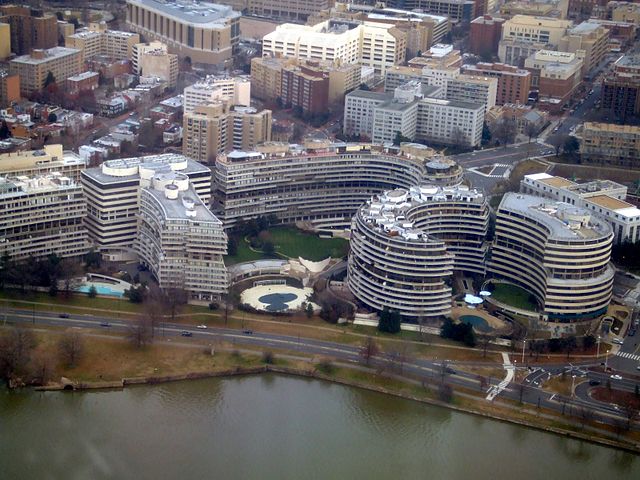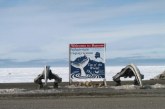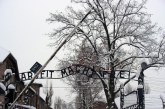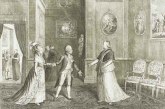
Story Highlights
- Historical event
- 17 June 1972
- One of the burglars in the Watergate hotel-office complex, Jim McCord, was a former CIA agent and current member of the President Nixon election campaign security. Phone numbers labeled "W House" and "W.H." were found in the address books of two burglars.
On this day, in the hotel-office complex Watergate in Washington, the police arrested five burglars in the offices of the Democratic Party headquarters.
The burglars were unusual by the fact that wiretapping equipment, $2.300 in bills with sequential serial numbers, a radio capable of listening in to police frequencies, and 40 rolls of unused film were found in their possession.
One of the burglars, Jim McCord, was a former agent of the CIA and current member of the security for President Nixon’s election campaign.
The address books of two burglars contained phone numbers labeled “W House” and “W.H.”.
Breaking into the premises of competitive party was ordered by President Nixon’s administration, and the secret illegal operation was approved even by Nixon’s Attorney General John Mitchell.
After the arrest of the five burglars, the Nixon administration tried to hush up the scandal and force the FBI not to conduct an investigation.
However, the FBI was not under the control of the White House and the investigation led to higher and higher officials, until it was finally found that President Nixon was personally involved in an attempt to prevent the investigation.
Nixon resigned (he was the only president in American history to do so). After a thorough investigation, as many as 69 members of the Nixon administration were charged, of which 48 whom found guilty by the court.
Among them were: Minister of Justice John N. Mitchell (19 months imprisonment), his successor Richard Kleindienst (one month in prison), and Chief of Staff H. R. Haldeman (18 months in prison).
It is possible that Nixon might have ended up in prison, but his successor in the presidential function, Gerald Ford, gave him a full and unconditional presidential pardon for all crimes that Nixon had committed during his term.
This pardon is considered controversial because Nixon was the one who previously named Ford as Vice President of the United States after the elected Vice President Spiro Agnew resigned because of another scandal (Gerald Ford was the only president in the history of the United States who was never elected in the elections, but was appointed to his position).




